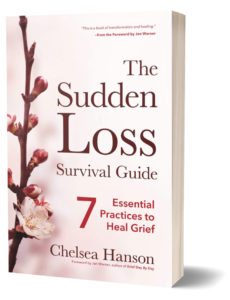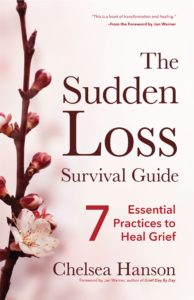“Shouldn’t you be over it by now?”
You may hear these questions from others and know they reflect the misconception that there is an acceptable amount of time to grieve. The only people who think there is a timeline to healing have not experienced loss. Unfortunately for mourners, those who have not lost a piece of their heart expect survivors to be back to “normal” within a few weeks or months. This is not realistic.
Others may encourage you to suppress your sorrow due to their own discomfort and helplessness surrounding grief. They don’t want you to be in pain, but don’t know how to help. Friends may encourage you to keep busy. Not knowing what else to do, you may heed this advice. But, by moving away from your pain, you are prolonging suffering and risk carrying unresolved grief forward into the years ahead.
This is where grief support can help. Professionals are ready to assist, support, and listen to you. It’s essential to have the guidance of those who know grief. A guide, coach, or teacher will understand where the stumbling blocks are and can provide valuable assistance.
With grief support, you’ll learn coping skills and most importantly have your feelings, emotions, and fears validated and acknowledged by others who have been there. Access to support programs can increase your confidence as well as decrease depression and hopelessness.
Leaning on those who have experienced the rough terrain of grief prior to you will give you hope and the possibility that better days will come. Being with others who have experienced the deaths of those they love are living proof that you will survive.
To find a grief support group:
- Research options for help online. Do an internet search to identify what type of healing support is available in your community. Hospices, funeral homes. and community organizations will list upcoming grief support meetings on their websites. Support can come from many sources, including programs through bereavement organizations, grief counselors, therapists, online forums, or social media.
- Call community organizations. Call your local hospital, hospice, or social service agency for a referral to a support group. You may have apprehension or lack energy, so having an easily accessible, comfortable location will support your attendance, whether driving to a local venue or attending an online group.

- Contact national organizations. There are many groups based on type of loss that can offer support. Although no one can understand directly what you are going through, those who have suffered similar losses can relate to and acknowledge your unique loss. Examples of national organizations include Compassionate Friends (child loss); National Alliance for Grieving Children (support for children who have suffered loss); Tragedy Assistance Program for Survivors (service member loss) or American Foundation for Suicide Loss (loss due to suicide). Visit the Association for Death and Education Counseling website for a complete listing of potential support organizations.
- Seek recommendations. Ask a person you admire or a role model who is farther along in his or her grief healing for suggestions on support group options. Those who have suffered a loss in your circle of influence will have valuable input and experience to support you.
- Find a mentor. A counselor, guide, coach, or teacher is an invaluable asset anytime you want to learn a new skill, such as coping with loss. Leaning on those who have experienced the rough terrain of grief prior to you will give you hope and the possibility that better days will come. Going it alone, as you may be incorrectly encouraged to do by our grief-avoidant society, will simply slow or delay your healing.
Wishing you light in loss,
Chelsea Hanson
Remembering with More Love than Pain
When a loved one dies unexpectedly, the person left behind often does not know what to do and needs guidance. After the sudden loss of her mother, Chelsea Hanson, a nationally recognized grief educator and founder of With Sympathy Gifts and Keepsakes, didn’t know where to turn for help, nor how to put the pieces of her life back together. Hanson’s The Sudden Loss Survival Guide gathers everything that she learned during her own healing process and provides an indispensable road map to assist those who’ve experienced a life-changing loss.
The Sudden Loss Survival Guide delivers the necessary tools to survive, cope, and heal from devastating loss. In this book, discover:
Order Here
Praise for the Sudden Loss Survival Guide
“A wonderful resource that provides many useful tools! Chelsea Hanson has created a heart-centered guide to working through the many aspects of grief… Take the time to read each chapter and allow it to speak to your heart and help you heal.”
—Lori Pederson, founder of I Did Not Know What to Say
“The Sudden Loss Survival Guide is a must-read guidebook for everyone who has experienced an unexpected loss of any kind in their life… This book is a wonderful reminder that grief is not insurmountable, and with courage and action you can move through it in one piece.”
—Sharon Ehlers, advanced grief recovery specialist and author of Grief Reiki



Leave a Reply